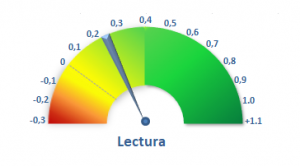Implementing institution: Renaissance Learning Company
Country: United Kingdom
Source: Education Endowment Foundation
Execution period: 1986 - in progress
Plataforma de Prácticas Efectivas:
To encourage reading habits and the joy of reading in children and young people.
A comprehensive classroom reading management and monitoring program based on an online application.
After 22 weeks, the program's impact makes 3 months of additional progress in reading.
Accelerated Reader (AR) is a reading promotion program for students in transition between elementary and secondary education. It covers a range of time management tools and individual progress monitoring so that teachers can adapt their pedagogy in class. The material is available in an online application, which was developed by Renaissance Learning Company.
Accelerated Reader is based on the analysis that it is easier to introduce reading habits in children when they can choose books according to their tastes. Therefore, they are given access to a wide range of books organized by genre (science fiction, novel, etc.). and difficulty levels. The teacher guides them to the right books thanks to an initial Standardized Test for Assessment of Reading (STAR), that the online application contains. Once the book is found, students are given between 30 and 60 minutes of individual reading each day.
The AR application has also developed more than 156,000 tests to assess the child’s comprehension of the text. According to the results obtained in the comprehension tests, the application proposes to the students a series of books that will allow them to continue making progress. Thanks to a formula that takes into account several characteristics of the book (its legibility, main themes, etc.), the application allows preventing students from choosing books that only allow them to obtain higher scores in the tests. In order to strengthen the motivation of participants, teachers are encouraged to develop their own reward system, such as certificates of excellence, competitions, bonuses, among others.
In England, the enrolment of children at elementary and secondary level covers almost the entire population of attendance age (99.85% and 98.28% respectively by 2014). Net participation rates have been growing since 2006, especially at the secondary level (+6 percentage points). However, the OECD’s PISA survey has highlighted a decline in reading literacy levels among part of the 15-year-old English population since 2011.
In 2013, the Accelerated Reader (AR) program was evaluated by Durham University thanks to the sponsorship of the Education Endowment Foundation (EEF). The objective was to appreciate the impacts of AR during a 22-week intervention on 7th graders. 166 students were randomly selected to receive the intervention in a first phase of the study, while another 183 received it in a second phase. The “waiting list” mode allows longitudinal monitoring of the students, and thus distributes the risks linked to the validity of the results. The comparison of the results of the control group and the intervention group in phases one and two of the study has highlighted an increase of 0.24 SD of the pupils’ reading abilities. This result is independent of the individual characteristics of the student, given by age or sex. The costs of the program are relatively low, since they mainly consist of the purchase of the license for the use of the application.
| Impact of intervention: |

Charts: Impact measured in standard deviations of the intervention group compared to the control group
Link: http://www.renaissance.com/products/practice/accelerated-reader-360/
Report: Ver informe
Other documents:
Tags: